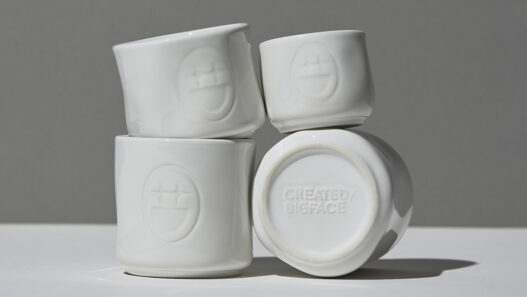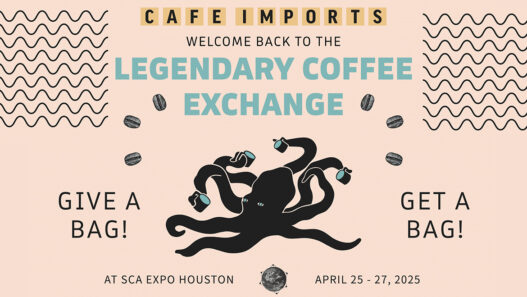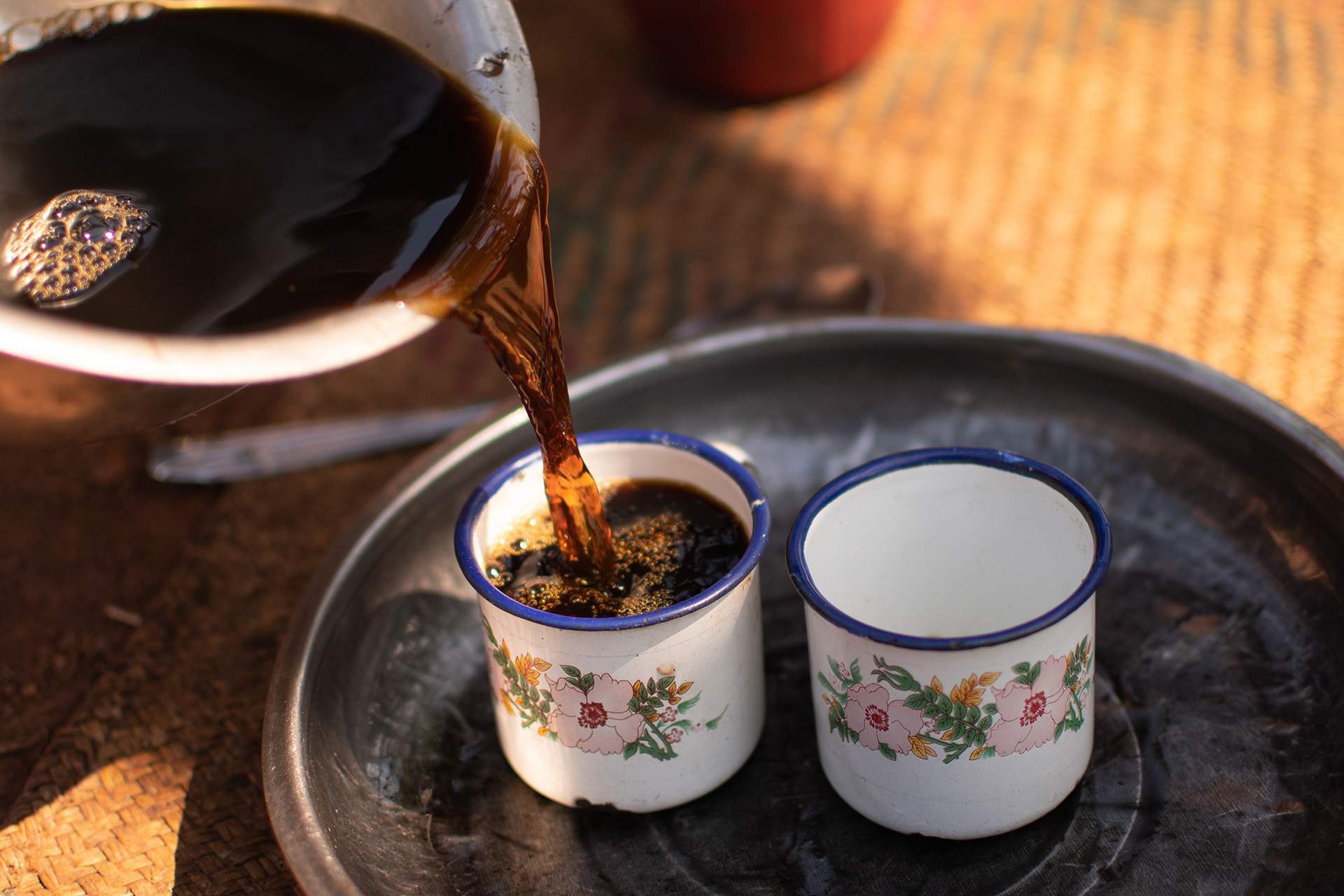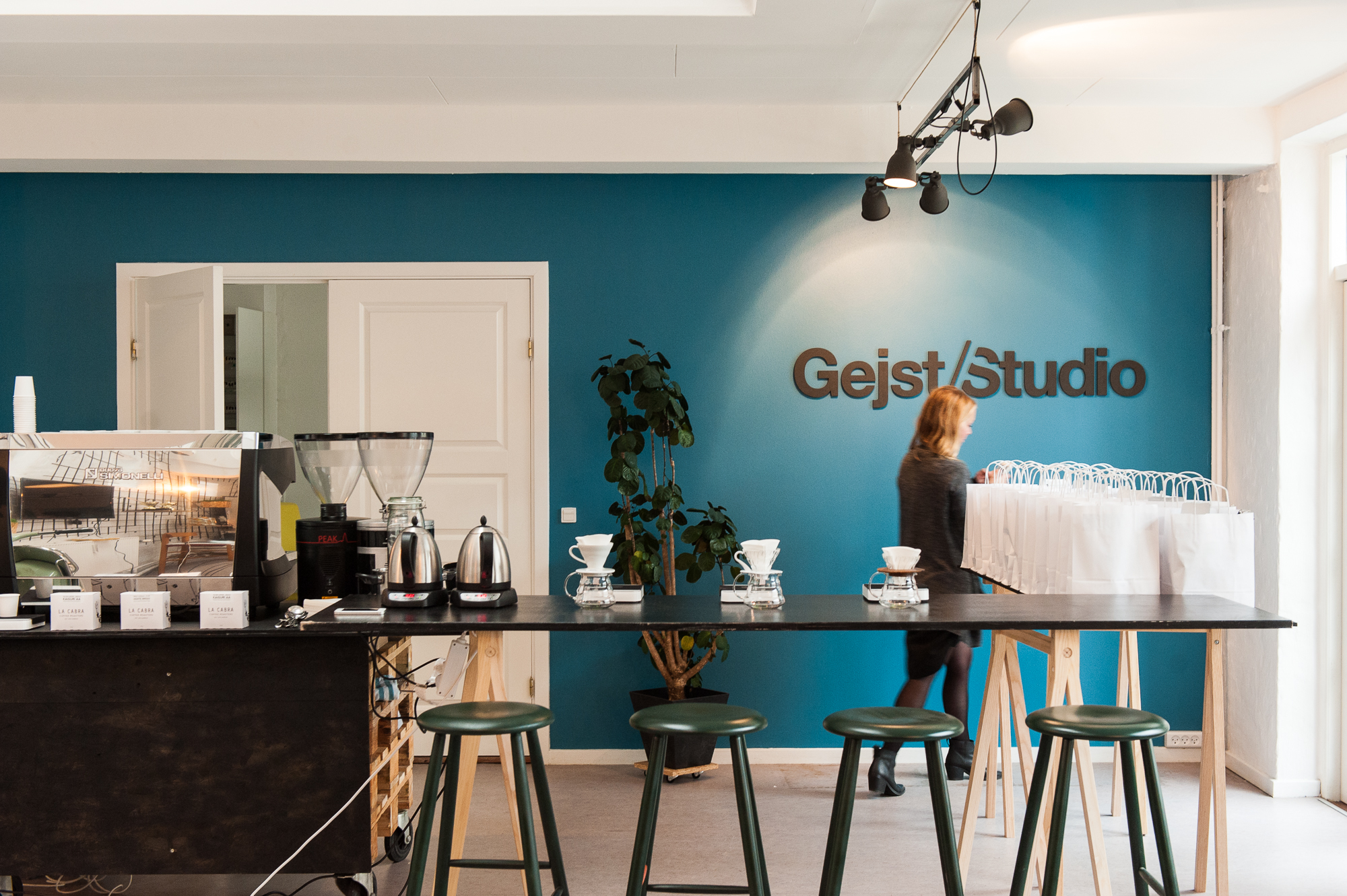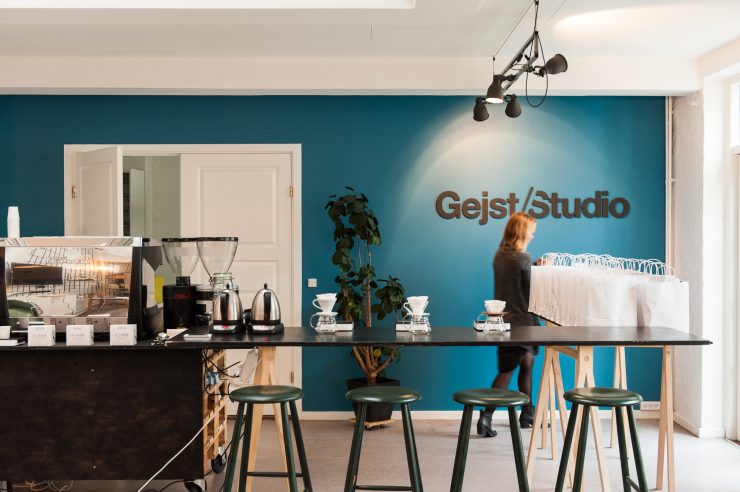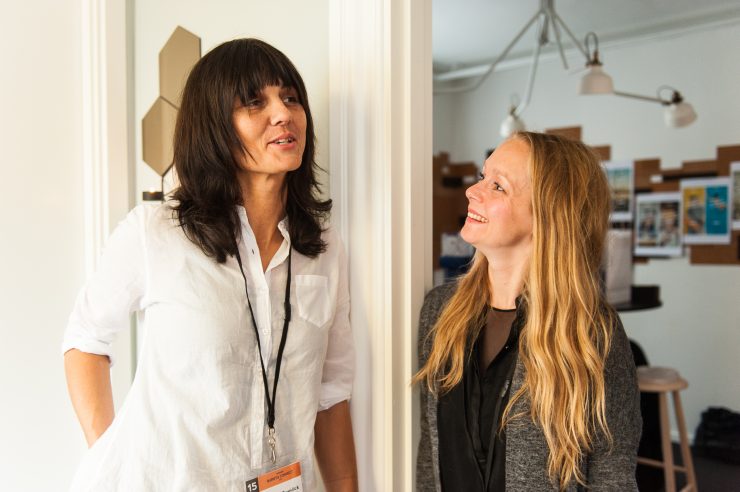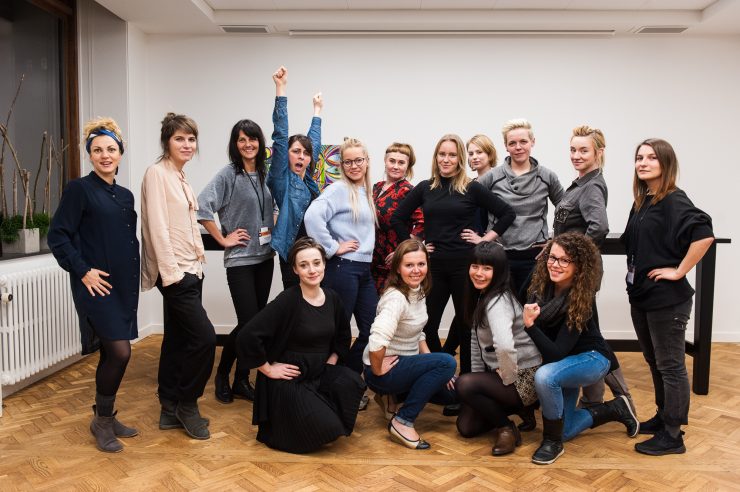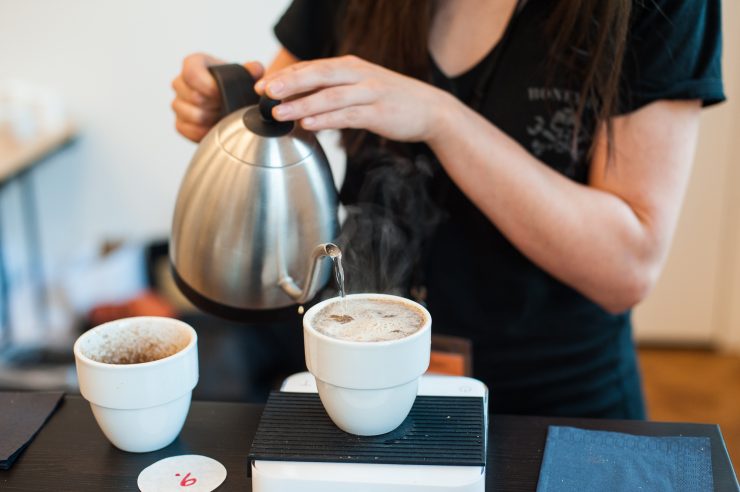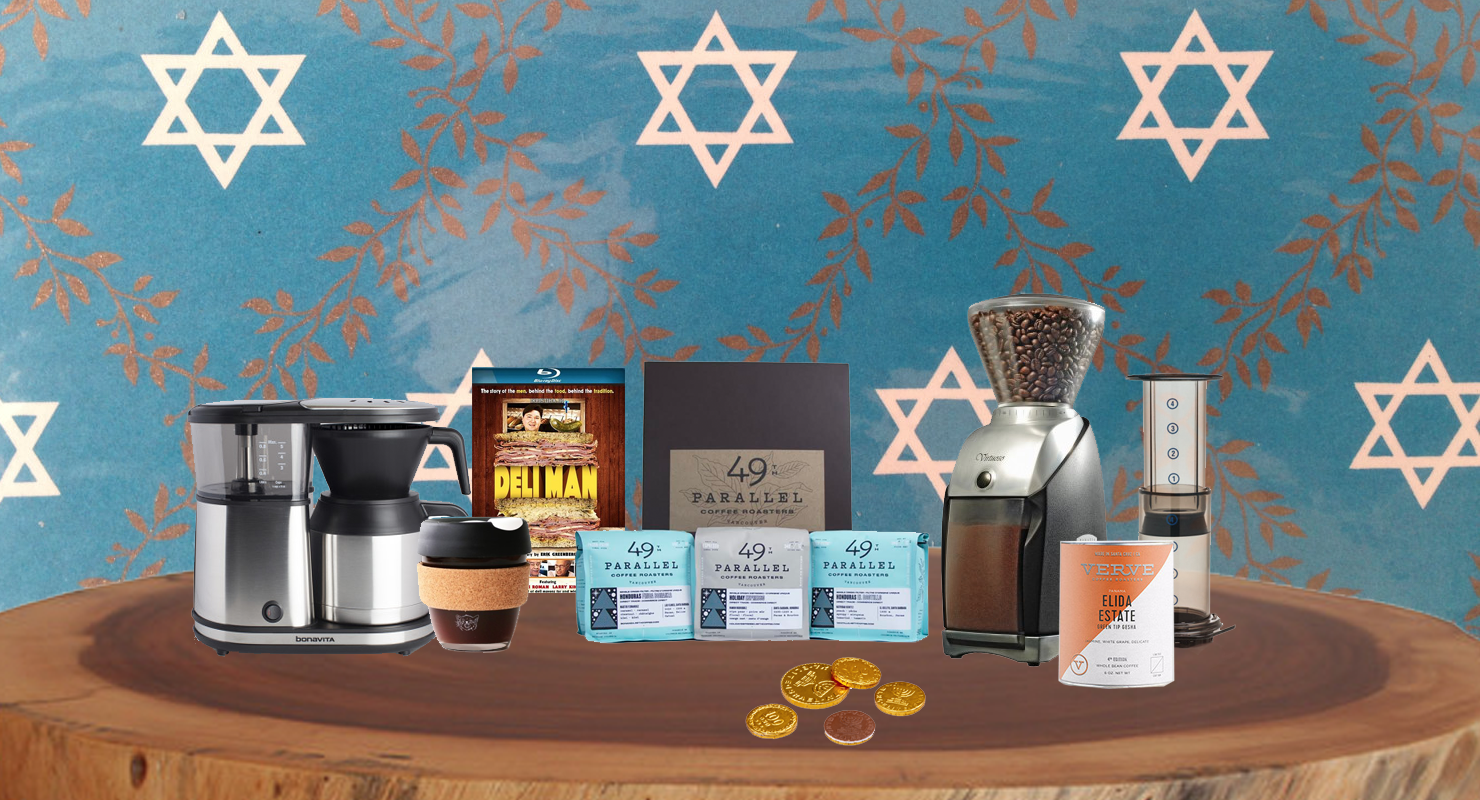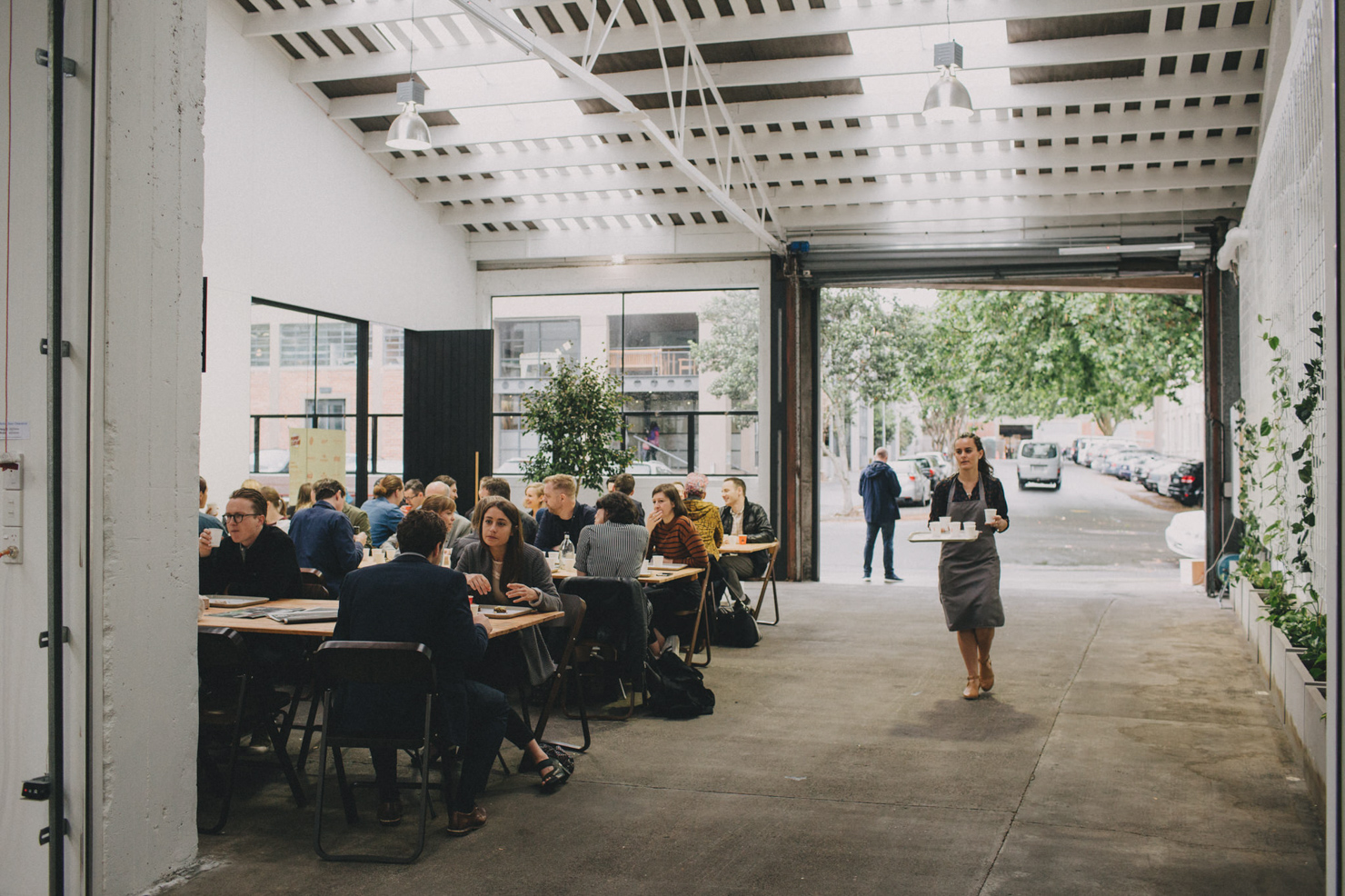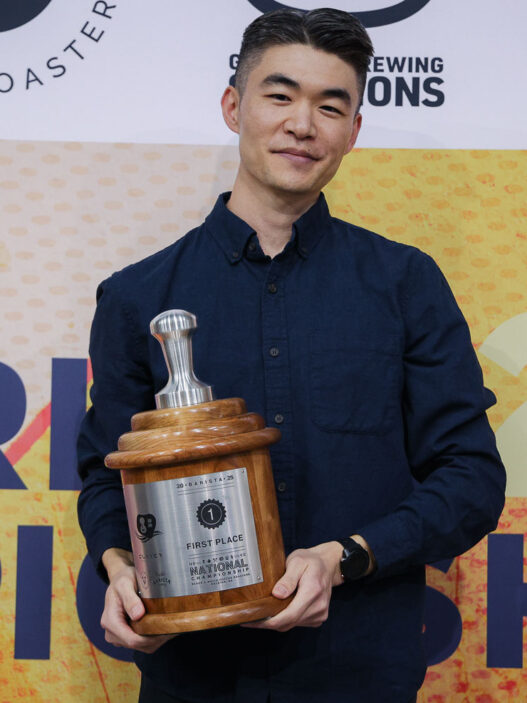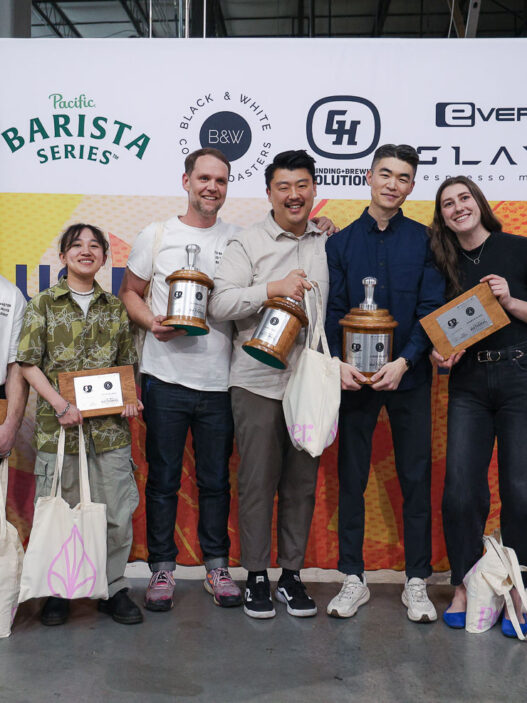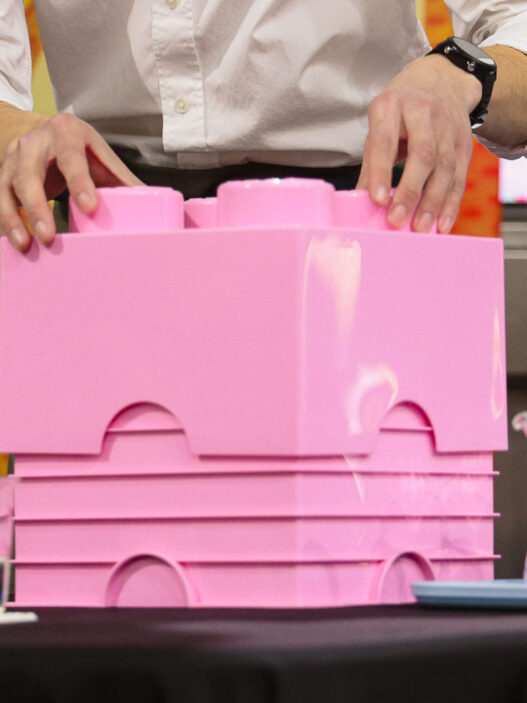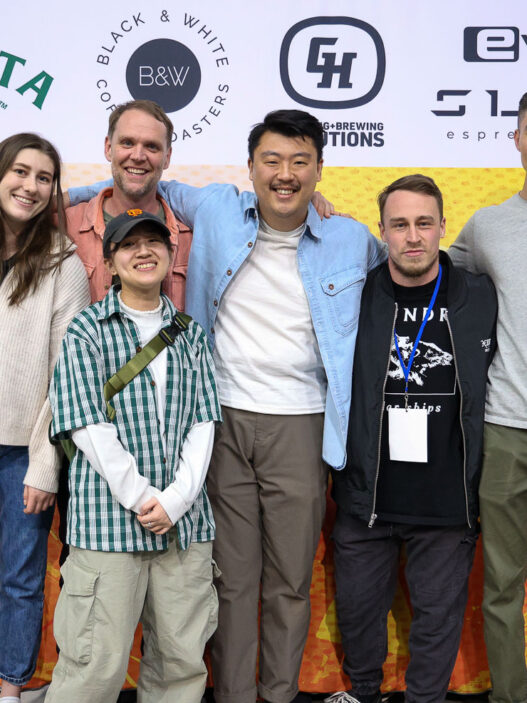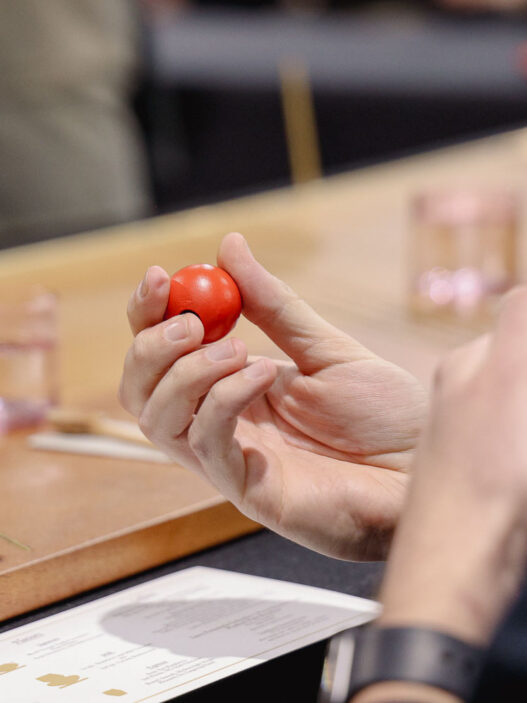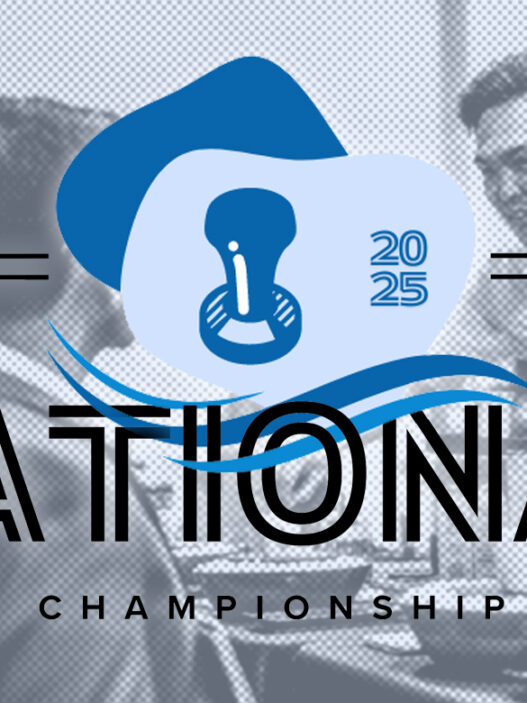When Austrian barista competitor Sonja Zweidick qualified for the 2013 World Barista Championships in Rimini, Italy, she was one of 12 women out of around 50 total competitors in the competition. None made it to the finals. The next year, she was one of nine in the tournament. One woman made it to the finals that year: Charlotte Malaval of France, a first-time competitor out of Paris, who wound up placing sixth out of six finalists. Competitors like Malaval and Zweidick have had a front row seat to an issue that’s being hotly debated right now in the barista competition world: Why don’t more women compete and win at these events?
It’s an issue that has been noticed, discussed, and wrestled with over the years, and is enjoying a moment right now as more and more coffee professionals grapple with the underlying issues. But Sonja Zweidick has not done her grappling quietly—far from it. She’s the founder of Barista Connect, a new coffee conference that directly addresses the issue of success in barista competitions for women, by focusing on rules, skills, and community building for the next generation of competitors.
“I had a pretty clear vision of which topics I wanted to bring up during the weekend, so that was never really an issue,” Zweidick told me at her event, which took place over a November weekend in Aarhus, Denmark. “I knew exactly which people I wanted to invite as guest speakers, and luckily they were all excited about the idea.”
What Zweidick planned was a conference intended to address these concerns in what she hoped was a proactive way. Barista Connect’s programming sought to provide in-depth knowledge about things that would help women advance in the competitions, peppered through with a bit of discussion about the state of women in the coffee industry.
Around 20 women attended this first iteration of Barista Connect, making for an intimate and lively weekend—an ideal atmosphere, really. The conference was held in the chic office of Gejst Studio, stocked with comfortable couches and chairs. On the opening morning our conversations and discussions began slowly, as with any meeting of new peers, while the group chatted about our varied backgrounds in coffee. But by the end of the first day, as we ate dinner and laughed over footage of the 2004 World Barista Championships, it felt as though we all knew each other well.
The next day’s lectures covered topics like milk science (from Arla’s Anne-Sophie Hoff), the mechanics of grinders (from Mahlkönig’s Ansgar Bitz), an incredibly in-depth and question-filled discussion of the new WBC rules (with Sonja Björk-Grant), and the importance of storytelling and presentation (from Gejst Studio’s Jesper Broberg Bang Olesen). Throughout the day we relaxed into asking questions, discussing with each other, and sharing our thoughts.
It might seem odd to make such a big deal about knowing your conference attendees, but I believe that this was one of the greater strengths of Barista Connect. As we moved into the second day of lectures, workshops, and cuppings, it became clear how important this intimacy was. At other large conferences I had attended before, people tend to gravitate towards people they already know, limiting the amount of interaction with newcomers. In cuppings and discussions, it can often be the same people speaking up, with those who feel they are newer to the field or less knowledgeable holding back their thoughts. On the contrary, I was struck by how comfortable most attendees at Barista Connect felt speaking up. In our cuppings everyone contributed ideas of what they smelled or tasted, perhaps boosted by Francisca Listov-Saabye’s lecture on sensory perception and workshop on the five basic tastes earlier in the day.
After the final cupping, Anna Oleksak verbalised the feeling of confidence the best, saying, “I feel like I can really speak up and say what I think in the cupping.”
I asked her whether she didn’t normally feel that way in her place of work or in other professional situations. She laughed a bit and her friend, Polish barista champion Agnieszka Rojewska interjected. “Yeah, you can speak up, but it’s like you are always somewhere in the background. Or you don’t feel comfortable… you don’t know the people.” And when it comes to competitions, Rojewska told me, “there are so few of us [women], and if we don’t know each other, it’s even worse.”
Rojewska’s comment about not knowing other women in coffee competitions is something we picked up on later, in the conference’s closing discussion. If women who compete, or consider competing, see so few other women at the top tiers of the industry and competition, how must it feel? What message does it send? We might ask, do women really need other women to show them the way or make them feel comfortable?
But maybe, more challengingly, this is unanswerable. How can we know when at every level, women are surrounded by men and shown the way by men? This final discussion touched on this subject as well as others that struck the real heart of the conference.
It was clear that even in our small group, there was such a variety of opinions on every nuance of the matter. And why not? One of the most reductive arguments that can be used when discussing women or feminism in any field is the belief that all women will be on the same page about everything. The goal of this conference was not to reach some kind of almighty consensus, or to search for some kind of phantom culprit holding us back, but rather, to have the conversation in the first place, and to state loudly and clearly that it is a conversation worth having.
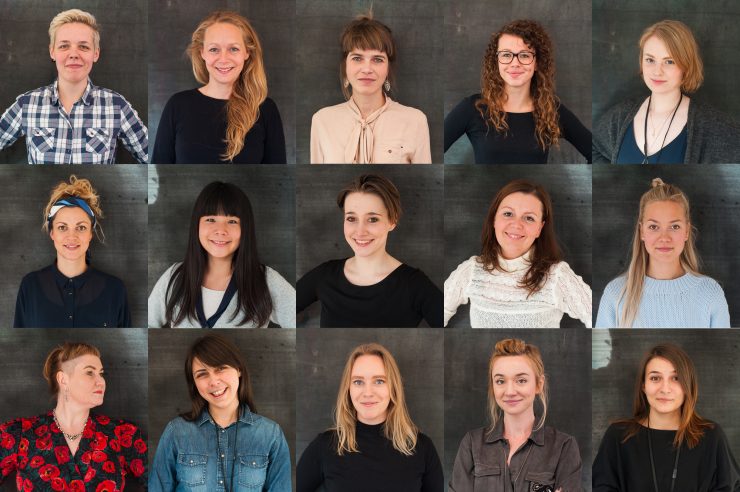
It was a credit to Zweidick and her structuring of the conference that this discussion came on the last day, when camaraderie had been built and we felt we could be frank with one another. Opinions were received and responded to, and nothing was shot down as outrageous or offensive, despite moments of passionate disagreement. Perhaps it was the small group; perhaps it was the fact that the discussion took place in person rather than on the Internet. But it was heartening to see this issue discussed with open minds seeking knowledge and change.
The one thing everyone could agree on was that this topic is real. We may have differed in how we viewed it, but it is clear that all of us believed there is *something* affecting women in the specialty coffee industry. Whether it is competitions—where women are not joining, not feeling comfortable asking for the knowledge about the rules, not returning year after year—or at work—where attendees expressed frustration at languishing in lower-level jobs, chomping at the bit to learn more and do more, but being passed over in favor of male coworkers.
I believe this conference was both needed and timely, and I think it may have been the beginning in a shift in consciousness that could lead to genuine change; a miniature version of what needs to happen more often across the world. Despite our varying viewpoints, our group longed for more settings like this where we could speak up, be heard, and hear others who could inspire us. What we wanted was less token women on panels, less panels dedicated to discussing these issues surrounding women. What we wanted was more women being invited to show their knowledge in their own voices.
It feels odd in some ways, to be singing the praises of a women-only coffee conference, when it is clear that the best option would be to have gender parity at normal conferences. But Barista Connect, and the future events it may inspire, does not need to be at odds with that goal. What we need is more women in specialty coffee feeling like they can and should be able to reach the top; women who are armed with information and don’t doubt themselves; women who aren’t afraid that when they speak up, they will be seen as too assertive…or worse yet, simply not listened to.
In the end, I believe we all left the conference fired up to do something about it. Like many others, I am not entirely sure what that something is. Sometimes it can seem like a dead end, following the same arguments in circles, always reaching the same frustrating conclusions, unable to move the conversation forwards. The eternal questions loom: is there something—some ingrained, sociological bias, some way we all function and interact with each other—that is holding women back and needs to be changed? Is it the women themselves being discouraged, not trying hard enough, not persevering, or whichever iteration of this we choose to believe?
While the problem is surely something that lies somewhere in between, a muddled mixture of many things intertwined, the best answer will cover all bases to make sure we are moving forward as much as we possibly can. Conferences like Barista Connect certainly help to instill the knowledge, camaraderie, bedrock rules and format knowledge, and confidence needed that inspire women to achieve success in coffee competitions. In the process, these women will become the role models they desperately want to see. That’s half the battle won.
Kate Beard is a Sprudge staff writer based in London. She competed in the 2014 UK Coffee In Good Spirits competition and will compete again in 2016. Read more Kate Beard on Sprudge.




